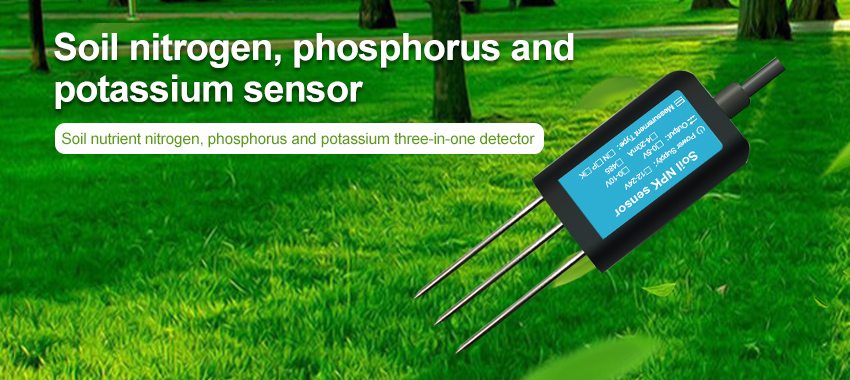Sustainable soil management is crucial for maintaining soil health, productivity, and long-term agricultural sustainability. The ability to monitor and analyze soil conditions accurately plays a significant role in making informed decisions regarding soil management practices. In recent years, soil sensor technology has emerged as a powerful tool for achieving sustainable soil management. This article explores the importance of soil sensor technology in promoting sustainable soil management, its applications, and the potential benefits it offers for agricultural practices.

Understanding Sustainable Soil Management:
Sustainable soil management involves practices that aim to preserve or improve soil health while optimizing agricultural production. It encompasses various strategies such as conservation tillage, crop rotation, nutrient management, erosion control, and water conservation. The effective implementation of these strategies relies on accurate and timely information about soil conditions, which can be obtained through soil sensor technology.
Soil Sensor Technology: An Overview:
Soil sensor technology involves the use of advanced sensors and monitoring systems to measure essential soil parameters accurately. These sensors can detect key factors such as soil moisture content, temperature, electrical conductivity, nutrient levels, and organic matter composition. The data collected by these sensors provides valuable insights into soil health, allowing farmers to make informed decisions regarding irrigation, fertilization, and overall soil management.
Optimal Irrigation Management:
One of the primary applications of soil sensor technology is in irrigation management. Soil moisture sensors help farmers determine the exact water requirements of their crops by providing real-time data on soil moisture content. With this information, farmers can optimize irrigation schedules and quantities, ensuring that crops receive adequate water without overwatering. This precision irrigation approach minimizes water wastage, reduces energy consumption, and improves crop water-use efficiency.
Precision Nutrient Management:
Soil sensors also contribute to precision nutrient management. By measuring soil nutrient levels, farmers can precisely determine the nutrient requirements of their crops. This data enables the application of fertilizers in the right amounts and at the right time, minimizing nutrient loss through leaching or runoff. Precision nutrient management reduces environmental pollution and optimizes fertilizer use, resulting in improved crop productivity and cost savings for farmers.
Assessing Soil Health and Fertility:
Soil sensor technology aids in assessing soil health and fertility by providing data on essential soil parameters. By monitoring factors such as soil electrical conductivity, pH levels, and organic matter composition, farmers can evaluate the overall health and fertility status of their soil. This information helps identify areas where soil amendments or specific management practices may be required to restore or enhance soil quality, thereby promoting sustainable soil management.
Targeted Soil Management Practices:
Soil sensor technology allows for targeted soil management practices, particularly in variable soil conditions. By mapping soil variability within fields using sensor data, farmers can implement site-specific soil management approaches. For instance, areas with low soil moisture can be identified and treated separately from areas with higher moisture levels. This precision approach minimizes resource wastage, reduces inputs, and maximizes crop productivity while maintaining soil health.
Enhanced Decision-Making and Sustainability:
The data generated by soil sensors facilitates evidence-based decision-making in agriculture. By integrating soil sensor data with other digital tools such as Geographic Information Systems (GIS) and computer models, farmers can gain valuable insights into the interactions between soil, climate, and crops. This holistic understanding allows for more sustainable and efficient practices, reducing environmental impacts and improving long-term soil health.

Conclusion:
Sustainable soil management is crucial for ensuring agricultural productivity, environmental sustainability, and food security. Soil sensor technology plays a vital role in achieving these goals by providing accurate and timely data on soil conditions. By enabling optimal irrigation management, precision nutrient application, and targeted soil management practices, soil sensors contribute to sustainable agriculture. Embracing this technology empowers farmers to make informed decisions, reduce resource wastage, protect soil health, and ensure the long-term sustainability of agricultural systems. The continued advancement and adoption of soil sensor technology hold great potential for transforming agricultural practices and promoting a more sustainable future.
